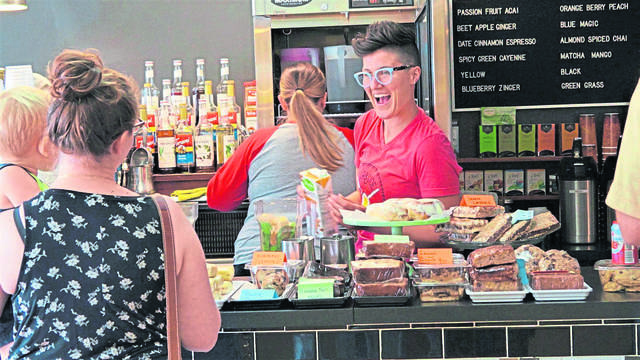And now the light comes back.
On Monday the winter solstice arrived, marking the moment we begin the slow climb out of the darkness, like weary miners exiting the pit. This year more than ever, the shift feels psychological as well as astronomical, so it’s a good time to take account of the things we’ve missed during this dark time, along with what has provided some light in spite of it all.
In that spirit, I’ve made two lists. I encourage you to make your own.
Things I’ve missed
The ability to plan. Before the pandemic, most of us made plans. For trips. Get-togethers. The future. Wise people have always known the precarious nature of the best-laid plans, etc., and people without money tend to know it. But until March, many of us enjoyed the fiction that we could control the time ahead. Now we live in the wobblier world of the day-by-day, which is disorienting but closer to reality.
Chitchat. Remember the idle but vital conversation you used to have with people at the coffeehouse or at work or church? Until you’re deprived of chitchat, you don’t notice how much those seemingly small connections and conversations educate and sustain you.
Coffeehouses. Nothing like a chilly December day to make you yearn for that cozy place outside the house where you can think, read or chitchat.
Travel. I miss the visits to friends and family. The possibility of exploring new and distant places. The change of view. The sense of movement.
Casual touch. Remember the hello hug, the goodbye hug, the it’ll-be-OK hug? The friendly hand on an elbow? The firm handshake? How long before those seem OK again?
Live music and theater. One day this summer I stopped to listen to a band playing in a neighborhood park. I saw a couple of bystanders with tears in their eyes and felt the same way. Virtual performances are better than nothing, but they simply can’t match the energy of live ones.
Wearing dresses. I love a good, simple dress. But what’s the point in a pandemic?
People I love. We talk, we email, we have dinner across the Zoom screen. That’s better than nothing — “better than nothing” is a mantra for our times — but it’s not the same. And yet, the separation has made me realize how much I love and depend on friends and family. Missing them makes me appreciate them more. Which leads to the second list.
Things I’ve appreciated more
Health care workers. Grocery clerks. Delivery people. Postal carriers. Poll workers. Journalists who go out into the world seeking sense in the chaos. Those are just some of the people the pandemic has taught us to call “essential.” They were essential before, but rarely recognized that way. Also, newspaper carriers. It’s a good season to tip yours, by the way.
Small businesses, and the people who work in them. Local shops and restaurants give life and flavor to our neighborhoods. As they struggle to stay alive in the pandemic, we realize their value more acutely.
Birds, bugs and trees. Nothing like being stuck at home to make you notice what lives around you.
Reliable Wi-Fi. As we’ve become more dependent on Wi-Fi, we’ve also learned how many people are deprived of it. Access to Wi-Fi is just one of the inequities the pandemic has exposed.
My neighbors. The pandemic has forced us outside — to eat, to exercise, to socialize — and, like many people, I’ve gotten to know my neighbors better as a result.
Good novels about plagues. It’s weirdly consoling to read about other plagues in distant times. Those stories put this plague into perspective. A few favorites: “Year of Wonders” by Geraldine Brooks. “Station Eleven” by Emily St. John Mandel. “The End of October” by Lawrence Wright. “Hamnet” by Maggie O’Farrell. “The Plague” by Albert Camus.
Being alive long enough to watch the light return.
Mary Schmich is a columnist for the Chicago Tribune and winner of the 2012 Pulitzer Prize for commentary.








